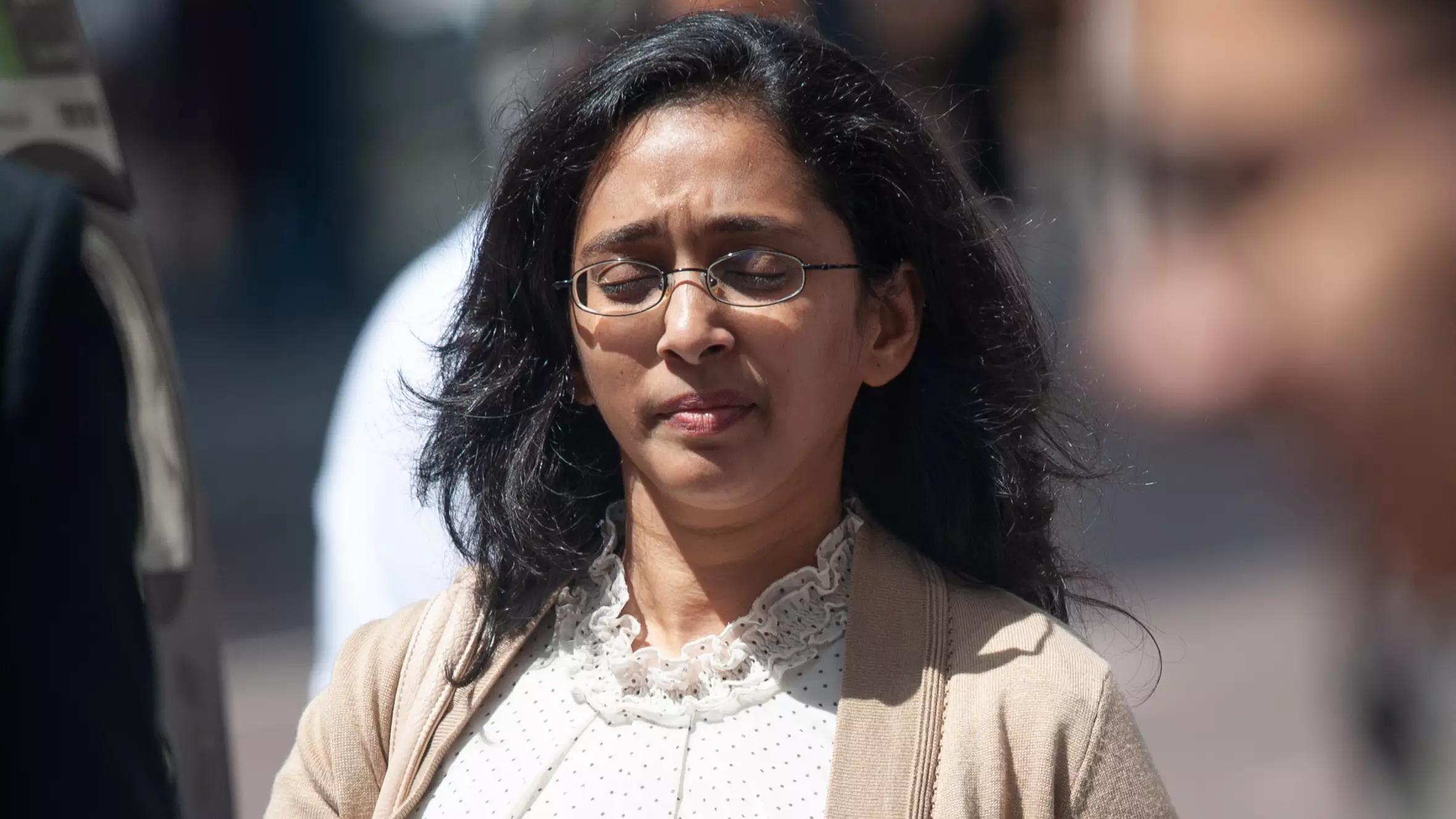
A shamed gynaecologist who caused an unborn baby to be decapitated inside his mother's womb during a botched hospital delivery was told she could keep her NHS job - with immediate effect.
Dr Vaishnavy Laxman, 43, can continue to work on maternity wards despite her catastrophic error, which came at the end of a gruelling 24-hour shift.
A medical tribunal said she posed 'no risk to patient safety', adding: ''Even good doctors can make mistakes.''
Advert

The hearing was told that Dr Laxman should have given the 30-year-old patient an emergency C-section as the premature infant was in a breech position on 16 March 2014.
But instead the doctor, who was working at Ninewells Hospital in Dundee, attempted to carry out the 15-minute delivery naturally and urged the mother-to-be to push - while herself applying traction to the baby's legs.
The manoevre caused the infant's legs, arms and torso to become detached leaving the head still in his mother's womb. Tests showed the youngster was already dead before he was decapitated.
Advert
Despite pleas by the General Medical Council to impose sanctions for serious professional misconduct, the Medical Practitioners Tribunal Service in Manchester said it did not believe Dr Laxman's fitness to practise medicine was 'impaired' by what happened.

It also ruled no warning would be placed on her record - the doctor is currently practising medicine in her native India.
Laxman listened as MPTS chairman Tim Bradbury told the hearing: ''It is beyond doubt that Patient A presented with an unusual and complex clinical picture and which it would be extremely rare for any obstetrician to encounter.
Advert
''Although the Tribunal found Dr Laxman's decision to proceed with a vaginal delivery contributed to the decapitation of Baby B after he had died, the Tribunal was not satisfied that the decapitation of Baby B would have been reasonably foreseeable to anyone in theatre at the time Dr Laxman made her decision to proceed with the vaginal delivery.
''The failing was not sustained, persistent, or repeated but rather a single error of judgement made in very difficult circumstances.
''Throughout the attempted delivery of Baby B, Dr Laxman believed that she was acting in both Patient A's and Baby B's best interests and that she genuinely believed that proceeding with a vaginal delivery was the optimum course to take in the circumstances which existed at the time.
''From the outset, Dr Laxman has always maintained responsibility for her decision and the actions which followed during this episode. She has never sought to minimise her decision and actions or their consequences, neither has she sought to deflect blame onto others despite the opportunity to do so.
Advert

''The Tribunal was satisfied that even good doctors can make mistakes and that it is sometimes a consequence of the field in which they are practising that the results of their mistakes can be significant.
''The magnitude of a doctor's error of judgement should not be elevated simply by reference to the ultimate outcome, which in this case was the tragic decapitation of Baby B.
''In respect of patient safety, the Tribunal was satisfied Dr Laxman does not currently present a risk to patients. Her wrong decision related to an isolated, single incident in an otherwise unblemished career. She has been considered to be a highly regarded, skilled, and competent clinician both before the events in question and since.
Advert
''The events in question are likely to have had a profound impact on Dr Laxman, as they surely will have for all others who were present in theatre that day. She has learnt from this unfortunate episode and that the likelihood of it being repeated is extremely remote."
Earlier the hearing was told that the patient's waters had broken early at 25 weeks and upon examination her unborn baby was found to have a prolapsed cord, and was in a breech position while the mother's cervix was between 2-4cm dilated.

It can reach 10cm when fully dilated, and the patient was told by doctors she might have to undergo a C-section.
But Laxman instead attempted to carry out the delivery naturally telling a colleague: ''We are not doing a C-section - you would never do a c-section of a 25-weeker.''
Two other doctors subsequently carried out a C-section on the woman to remove the infant's head. It was 're-attached' to his body so his mother could hold him before she said goodbye. Police are thought to have investigated but took no action.
Laxman, who qualified in Chennai, India in 1999, denied any wrongdoing, saying she believed the baby would have died had a C-section been carried out.
Featured Image Credit: Cavendish PressTopics: maternity, Baby, Doctor, UK News, News, Medical, Health, Mother